Introduction to South Africa
South Africa, located in the southernmost part of the African continent, is a diverse and vibrant country that offers a wide range of experiences for tourists. From breathtaking landscapes to a rich cultural heritage, South Africa has something for everyone. Here is a brief overview of what you can expect when visiting this incredible country.

A brief overview of South Africa
- South Africa is known for its diverse wildlife and is home to the famous Big Five: elephants, lions, leopards, rhinos, and buffalos.
- The country boasts stunning natural landscapes, including the iconic Table Mountain, the scenic Garden Route, and the world-renowned Kruger National Park.
- South Africa is a melting pot of cultures, with 11 official languages and a rich history of traditions and customs.
- The country’s history, including the apartheid era, has shaped its current social and political landscape, making it a fascinating destination for those interested in history and social justice.
- Cape Town, Johannesburg, and Durban are some of the major cities that offer a vibrant urban experience with a mix of modern amenities and cultural attractions.
Popular tourist destinations in South Africa
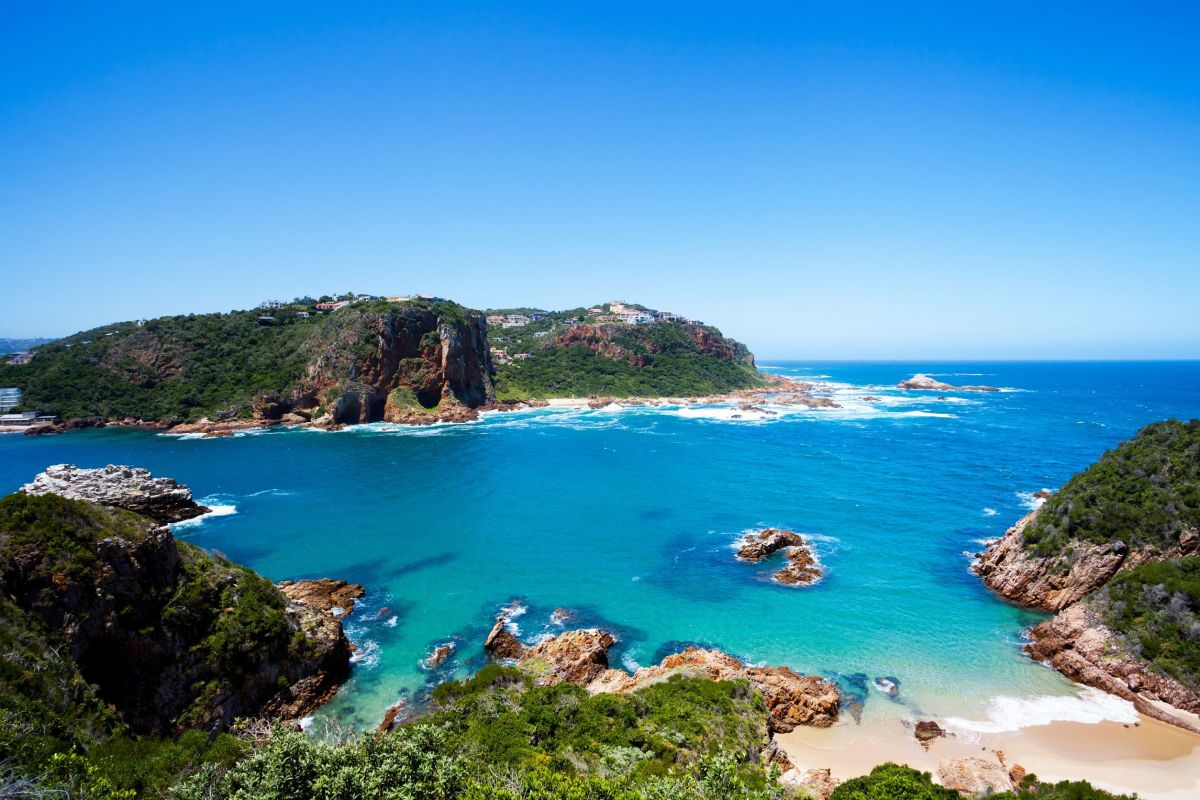
- Cape Town: Known for its stunning views and diverse attractions, Cape Town offers a mix of natural beauty and urban sophistication. Don’t miss a visit to Table Mountain, Robben Island, and the Cape Winelands.
- Kruger National Park: This world-renowned safari destination is home to a vast array of wildlife, including the Big Five. Embark on a thrilling game drive and witness these incredible animals in their natural habitat.
- Garden Route: This scenic route along the coast offers breathtaking landscapes, charming towns, and outdoor activities such as hiking, whale watching, and bungee jumping.
- Johannesburg: As the largest city in South Africa, Johannesburg offers a vibrant cultural scene, including art galleries, museums, and vibrant street markets. Visit the Apartheid Museum to learn more about the country’s history.
- Durban: Located on the east coast, Durban boasts beautiful beaches, a lively waterfront, and a thriving Indian community. Don’t miss a visit to the uShaka Marine World and the Moses Mabhida Stadium.
These are just a few examples of the many incredible destinations waiting to be explored in South Africa. Whether you’re looking for wildlife encounters, cultural experiences, or natural wonders, South Africa has it all.
Cape Town
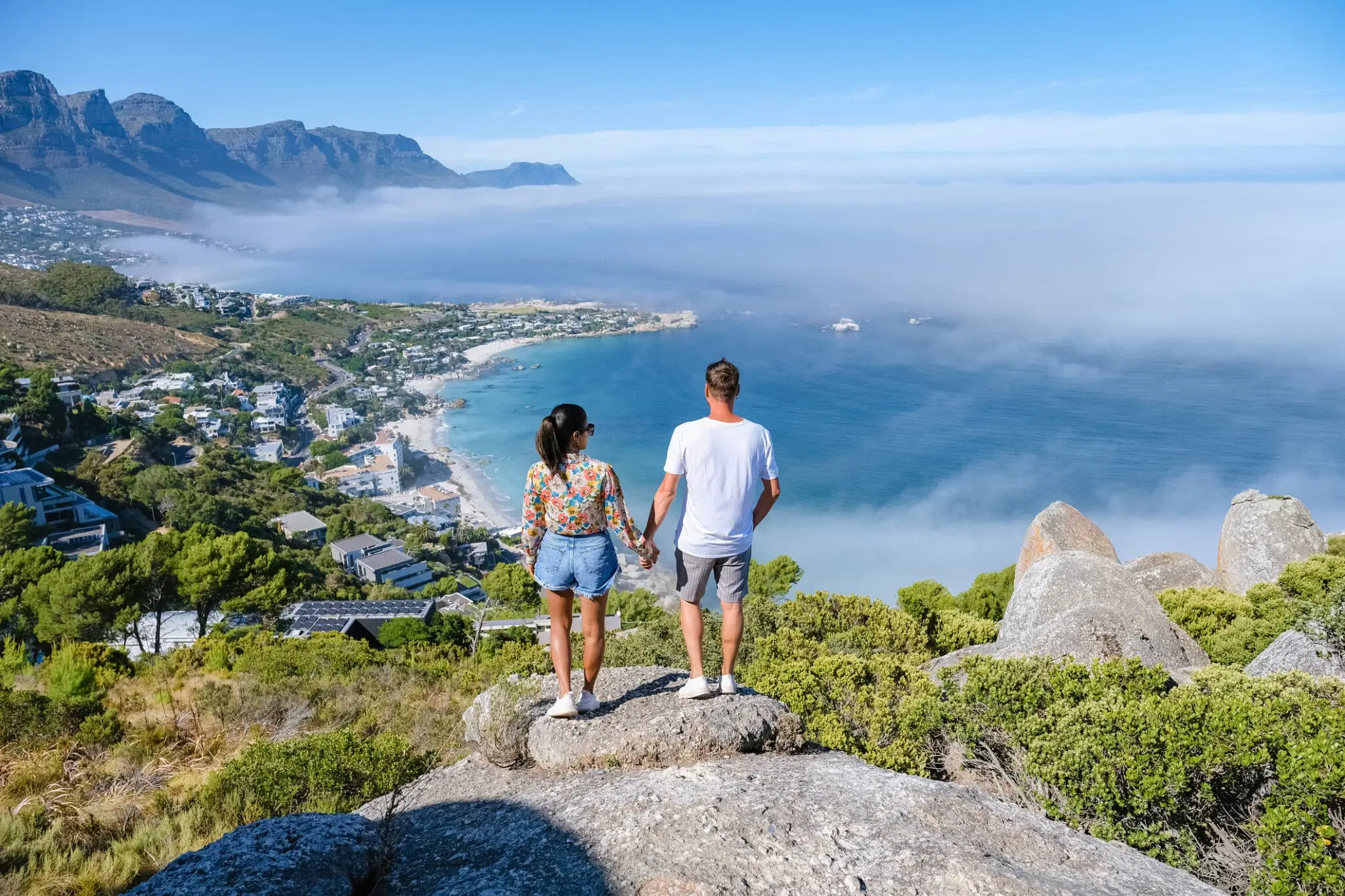
Attractions in Cape Town
Cape Town is a vibrant city in South Africa that offers a wide range of attractions for tourists. Here are some of the top attractions to visit in Cape Town:
1. Table Mountain: One of the most iconic landmarks in Cape Town, Table Mountain offers breathtaking views of the city and the surrounding landscape. Take a cable car ride to the top and enjoy the panoramic vistas.
2. Robben Island: A visit to Robben Island is a must-do for history buffs. This UNESCO World Heritage Site is where Nelson Mandela was imprisoned for 18 years. Take a guided tour to learn about the island’s history and the struggle against apartheid.
3. V&A Waterfront: The V&A Waterfront is a bustling harbor area that offers a mix of shopping, dining, and entertainment. Take a leisurely stroll along the waterfront, visit the Two Oceans Aquarium, or enjoy an open-air concert or theater performance.
4. Kirstenbosch National Botanical Garden: Known as one of the most beautiful botanical gardens in the world, Kirstenbosch is a paradise for nature lovers. Explore the diverse plant species, take a walk along the tree canopy walkway, or enjoy a picnic on the lawns.
5. Cape Point: Located within Table Mountain National Park, Cape Point is a scenic promontory known for its dramatic cliffs and stunning ocean views. Take a hike or a funicular ride to the top and visit the iconic Cape Point Lighthouse.
Cultural highlights of Cape Town
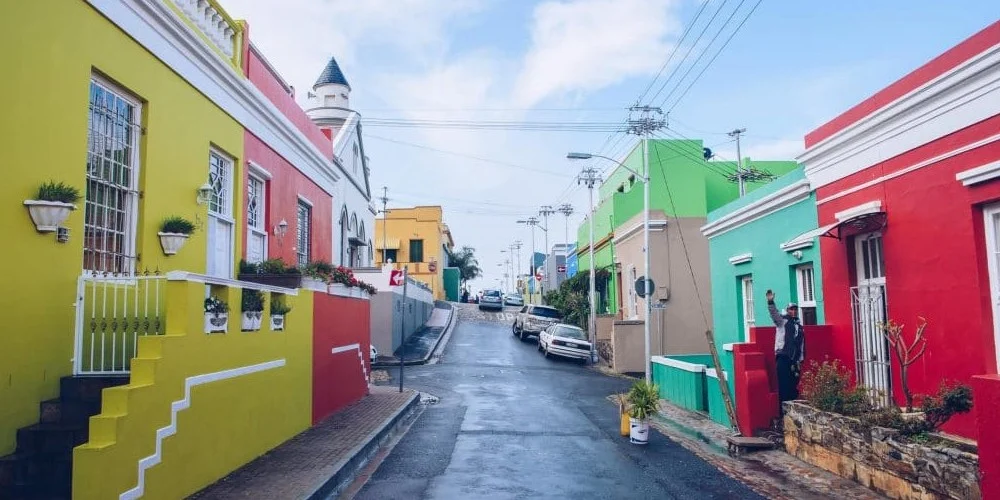
Cape Town is a multicultural city with a rich history and a vibrant culture. Here are some cultural highlights to explore in Cape Town:
• District Six Museum: Learn about the forced removals during apartheid at the District Six Museum. The museum tells the stories of the people who were forcibly displaced from their homes in the area.
• Bo-Kaap: Explore the colorful streets of Bo-Kaap, a historic Cape Malay neighborhood known for its vibrant houses and delicious cuisine. Visit the Bo-Kaap Museum to learn about the history and culture of the area.
• Zeitz Museum of Contemporary Art Africa: Located in a converted grain silo on the V&A Waterfront, the Zeitz MOCAA is the largest museum of contemporary art in Africa. Explore the diverse collection of contemporary African art.
• Cape Town City Hall: Marvel at the stunning architecture of the Cape Town City Hall, a historic landmark in the city center. The building is known for its beautiful dome and is a symbol of Cape Town’s history.
These are just a few of the many attractions and cultural highlights that Cape Town has to offer. Whether you’re interested in natural beauty or cultural experiences, Cape Town is sure to captivate and inspire you.
Kruger National Park

Wildlife and nature in Kruger National Park
Kruger National Park is one of the most famous wildlife reserves in South Africa and is a must-visit destination for nature and animal lovers. The park is home to an incredible variety of wildlife, including the famous Big Five: lions, elephants, buffalo, leopards, and rhinos. With its vast size of approximately 19,000 square kilometers, the park offers visitors the opportunity to witness these majestic creatures in their natural habitat.
In addition to the Big Five, Kruger National Park is home to over 140 different mammal species, including giraffes, zebras, cheetahs, and hyenas. The park also boasts a diverse range of bird species, making it a paradise for bird enthusiasts.
The park’s stunning landscapes and ecosystems further contribute to its appeal. From open savannahs and dense forests to rolling hills and flowing rivers, Kruger National Park offers breathtaking natural beauty and a rich biodiversity that is unmatched.
Safari experiences in Kruger National Park
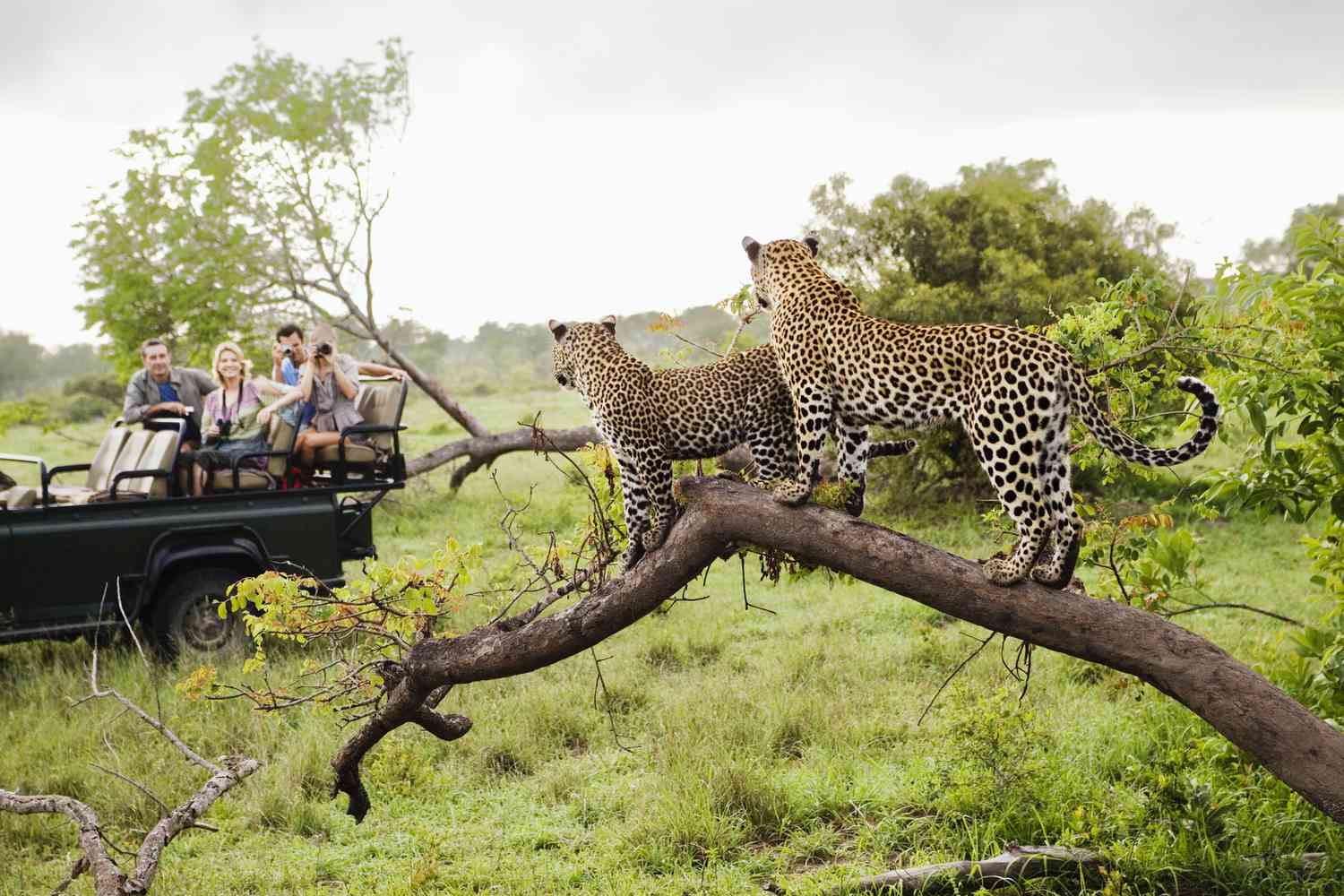
When visiting Kruger National Park, one of the best ways to fully experience the park’s wildlife and nature is through a safari. Visitors can go on guided tours with knowledgeable rangers during safaris, giving them the chance to see animals up close in their natural habitat.
Game drives are one of the most popular safari experiences in the park. These guided tours take visitors on a journey through the park, allowing them to spot and observe wildlife from the safety of specially designed vehicles. Game drives can be conducted during the day or night, offering unique opportunities to witness different animal behaviors and interactions.
For a more immersive and adventurous experience, visitors can also opt for walking safaris and wilderness trails. These guided hikes take visitors on foot through the park, providing a closer and more intimate encounter with nature and wildlife. Walking safaris and wilderness trails offer a unique perspective and allow visitors to appreciate the smaller wonders of the park, such as flora and birdlife.
Kruger National Park also offers various accommodations to suit different preferences and budgets. From luxury lodges and tented camps to self-catering chalets and campsites, visitors can choose accommodations that best suit their needs while immersing themselves in the natural beauty of the park.
Visiting Kruger National Park is an unforgettable experience that offers the opportunity to witness Africa’s incredible wildlife and natural wonders up close. Whether you choose to embark on a thrilling game drive or a peaceful walking safari, the park promises to provide a truly memorable adventure in the heart of South Africa’s wilderness.
For more information, visit the official website of Kruger National Park.
Johannesburg
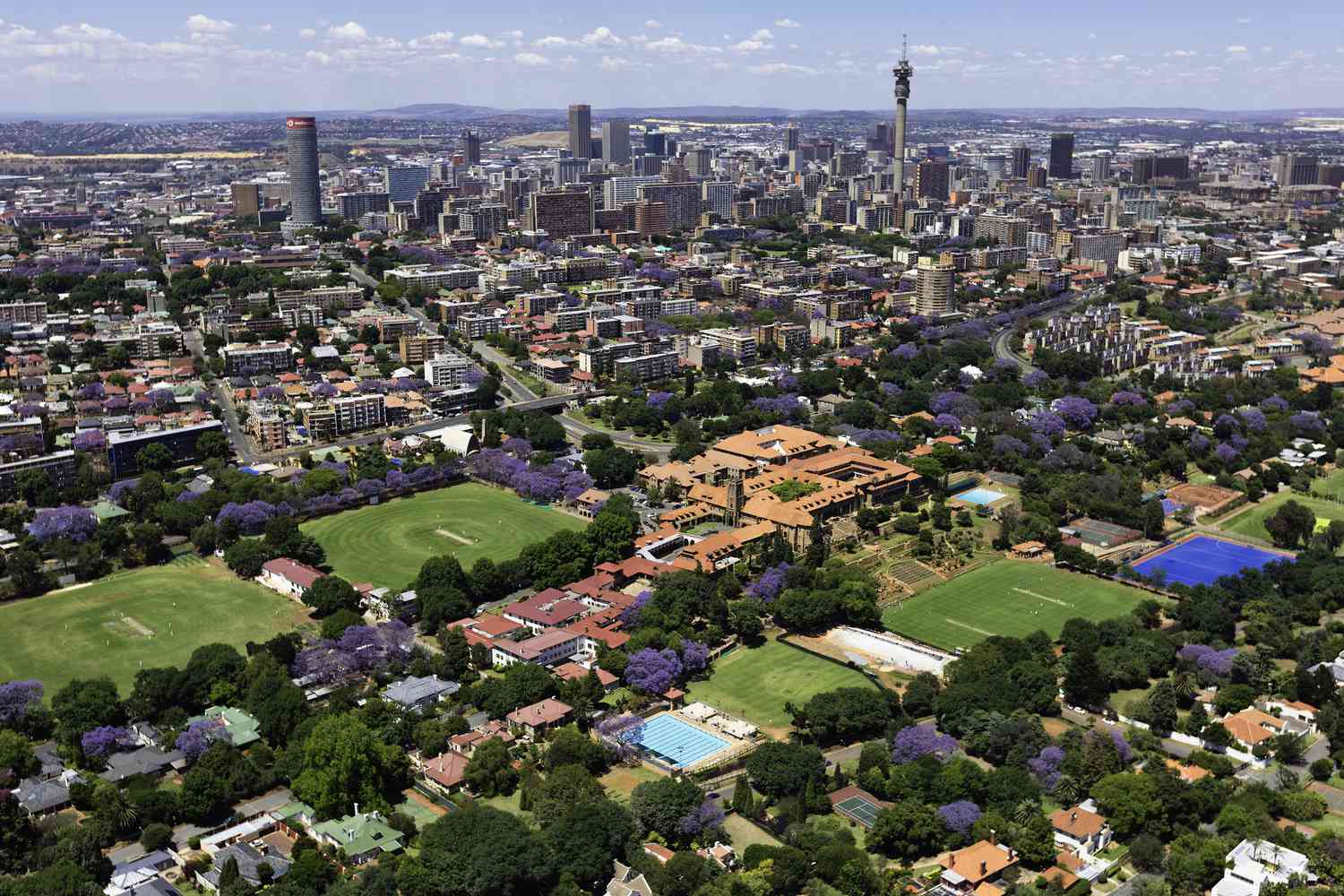
Must-visit attractions in Johannesburg
Johannesburg, also known as the “City of Gold,” is the largest city in South Africa and offers a fascinating blend of culture, history, and modernity. Here are some of the must-visit attractions in Johannesburg:
1. Apartheid Museum: The Apartheid Museum provides a powerful and moving experience that documents the rise and fall of apartheid in South Africa. It offers a comprehensive overview of the country’s turbulent past and serves as a reminder of the importance of human rights and equality.
2. Soweto: Soweto is a vibrant township on the outskirts of Johannesburg that played a significant role in the struggle against apartheid. Take a guided tour to learn about its history and visit landmarks such as Nelson Mandela’s former home.
3. Constitution Hill: This former prison complex has been transformed into a museum and heritage site that showcases South Africa’s journey to democracy. It is home to the Constitutional Court, which upholds the rights enshrined in the country’s constitution.
4. Johannesburg Botanical Garden: Escape the bustling city and visit the Johannesburg Botanical Garden, a serene oasis filled with stunning flora and fauna. The garden is a popular spot for picnics, leisurely walks, and birdwatching.
5. Lion and Safari Park: For a taste of South Africa’s wildlife, head to the Lion and Safari Park. Here, you can go on a safari drive to see lions, cheetahs, wild dogs, and other animals up close.
Historical significance of Johannesburg
Johannesburg has a rich historical significance as a city that played a pivotal role in South Africa’s journey to democracy. Some key points of historical importance include:
- Gold Rush: Johannesburg was founded in 1886 after the discovery of gold, which led to a boom in mining activities and population growth. The city became known as the “City of Gold” and attracted people from around the world.
- Apartheid: Johannesburg was at the heart of the apartheid regime, with various historical events taking place within the city. The Apartheid Museum and Constitution Hill offer deep insights into this dark period of South African history.
- Struggle Against Apartheid: Johannesburg played a significant role in the struggle against apartheid, with notable figures such as Nelson Mandela emerging from the city. Soweto, in particular, was a hotbed of resistance and activism.
Visiting Johannesburg allows travelers to immerse themselves in the history and culture of South Africa, gaining a deeper understanding of the country’s past and present.
Garden Route
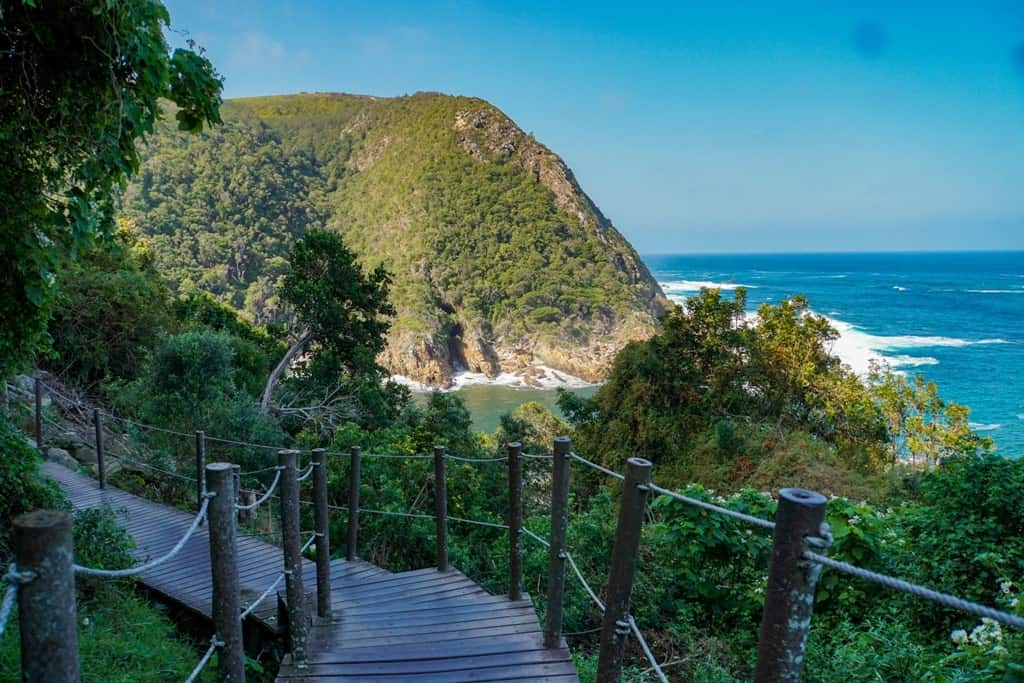
Scenic beauty and activities along the Garden Route
The Garden Route is a stunning stretch along the southeastern coast of South Africa. Known for its breathtaking scenery and diverse ecosystems, it is a popular tourist destination that offers a range of outdoor activities and attractions. Here are some highlights of the Garden Route:
- Breathtaking Scenery: The Garden Route is famous for its picturesque landscapes, which include pristine beaches, lush forests, and towering cliffs. Traveling along this route, you’ll be treated to stunning views around every turn.
- Nature Reserves and National Parks: The Garden Route is home to several nature reserves and national parks, such as Tsitsikamma National Park and Wilderness National Park. These protected areas offer opportunities for hiking, bird watching, and exploring the region’s unique flora and fauna.
- Adventure Activities: The Garden Route is a paradise for adventure enthusiasts. From zip-lining through the treetops of Tsitsikamma Forest to bungee jumping off the Bloukrans Bridge, there are plenty of thrilling activities to get your adrenaline pumping.
- Whale Watching: The coastal towns along the Garden Route, such as Hermanus and Plettenberg Bay, are renowned for their whale-watching opportunities. During the migration season (June to November), you can spot southern right whales and humpback whales swimming close to the shore.
Recommended stops and attractions

- Knysna: This charming coastal town is nestled on the shores of a picturesque lagoon. It offers a range of activities, including boat trips to the famous Knysna Heads, hiking in the nearby forests, and enjoying fresh seafood at waterfront restaurants.
- Plettenberg Bay: Known for its beautiful beaches and vibrant marine life, Plettenberg Bay is a must-visit destination along the Garden Route. Take a boat trip to see dolphins and seals, enjoy a leisurely beach day, or go hiking in the surrounding nature reserves.
- Tsitsikamma National Park: This pristine coastal reserve is a nature lover’s paradise. It features dramatic cliffs, ancient forests, and a network of hiking trails that showcase the region’s natural beauty. Don’t miss the chance to walk across the suspension bridge at Storms River Mouth.
- Wilderness: This tranquil seaside town offers a perfect blend of nature and relaxation. Explore the Touw River Lagoon by canoe, go birdwatching in the Wilderness National Park, or simply unwind on the stunning beaches.
The Garden Route is a must-visit destination for anyone traveling to South Africa. Its breathtaking scenery, outdoor activities, and charming towns make it an unforgettable part of any itinerary.
Durban
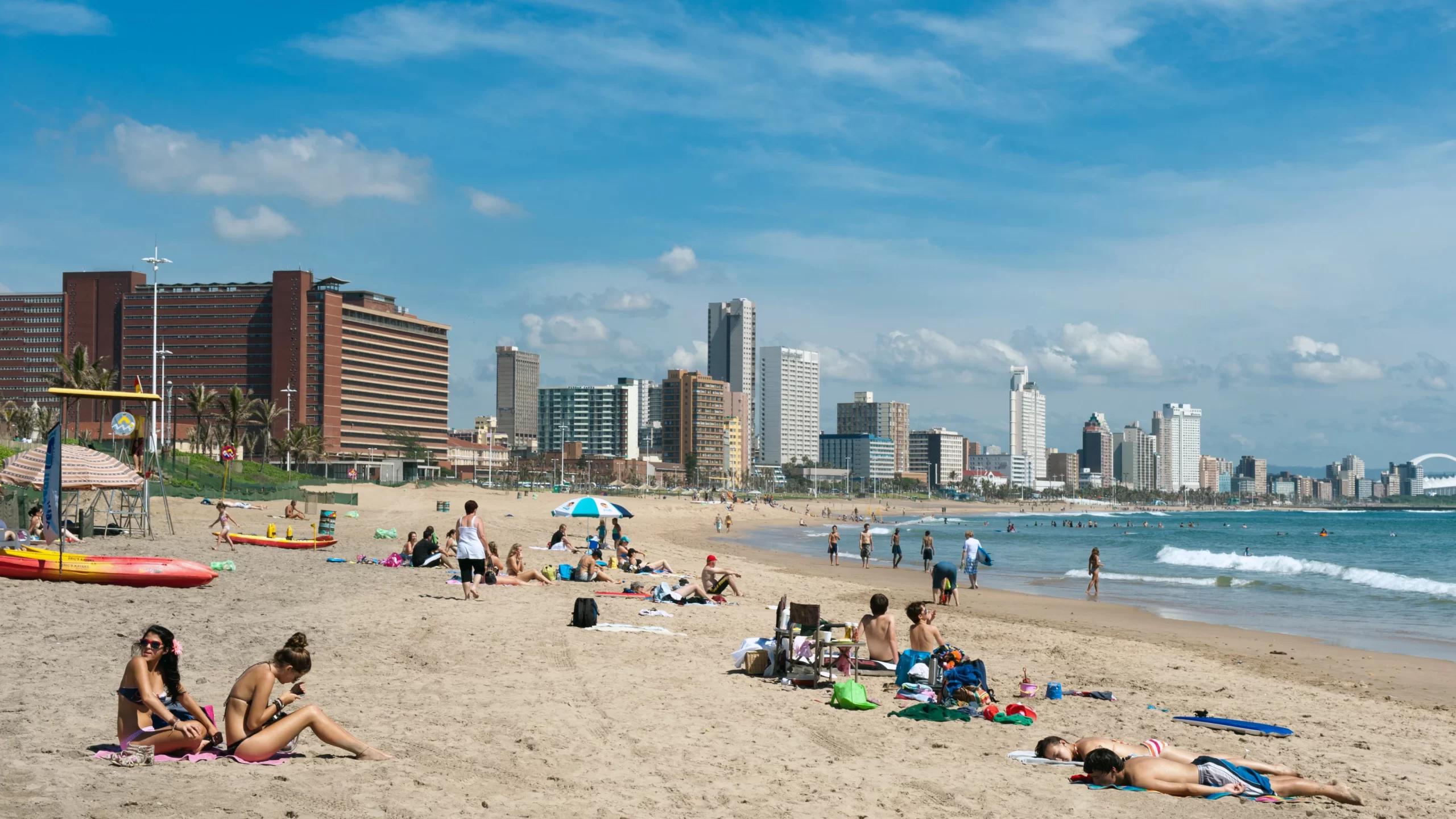
Beach culture and water sports in Durban
Durban is a vibrant coastal city in South Africa, known for its beautiful beaches and diverse cultural heritage. Here are some highlights of what Durban has to offer:
- Abundance of Beaches: Durban is home to some of the most stunning beaches in South Africa. With its warm climate and crystal-clear waters, it’s the perfect destination for beach lovers. Some of the popular beaches in Durban include Umhlanga Rocks Beach, North Beach, and South Beach.
- Water Sports: If you’re a thrill-seeker, Durban is the place to be. The city offers a wide range of water sports activities, including surfing, kiteboarding, jet skiing, and paddleboarding. Whether you’re a beginner or an experienced adventurer, there’s something for everyone.
- Durban’s Golden Mile: Stretching along the beachfront, Durban’s Golden Mile is a popular spot for outdoor activities and entertainment. You can take a leisurely stroll, rent a bicycle, or enjoy a picnic on the grassy lawns while taking in the beautiful views of the ocean.
- uShaka Marine World: Located on the Golden Mile, uShaka Marine World is a must-visit attraction in Durban. It is one of the largest aquariums in the world and offers a variety of marine exhibits, thrilling water slides, and interactive experiences. It’s a fun-filled day out for the whole family.
- Cultural Experiences: Durban is known for its diverse cultural heritage, with a significant Indian population. You can explore the vibrant Indian market, sample delicious street food, and visit the iconic Juma Mosque. The city also hosts the annual Durban July, a prestigious horse racing event that showcases fashion and entertainment.
Durban offers a unique blend of beach culture, water sports, and cultural experiences that make it a top destination for tourists in South Africa. n page on Wikipedia.
Cape Winelands
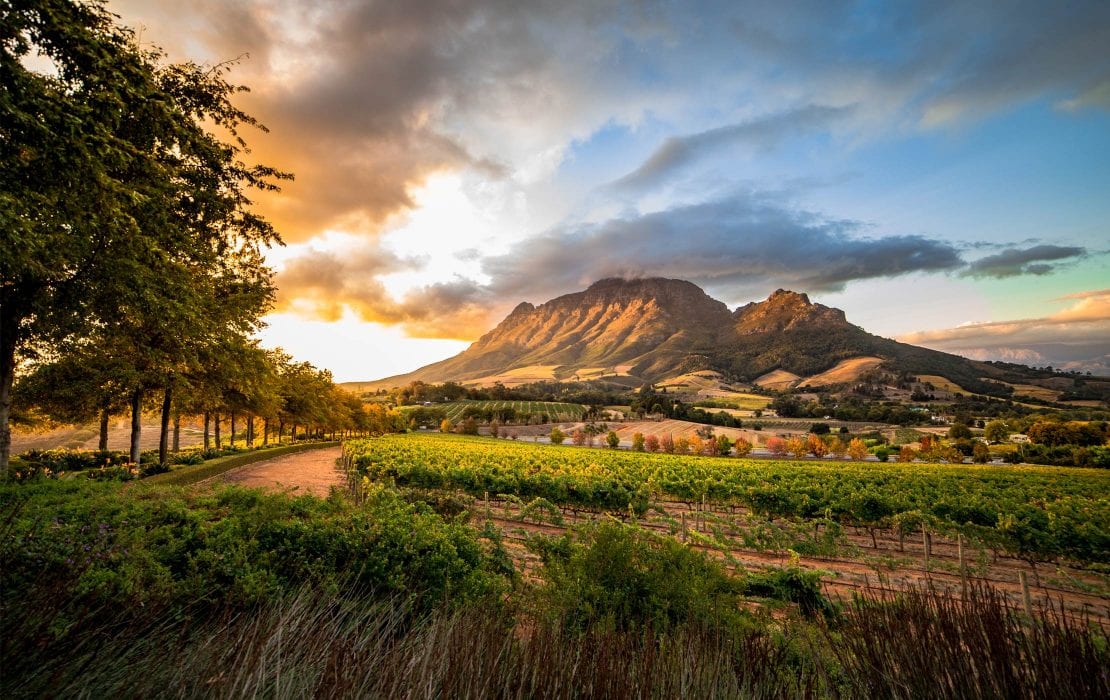
Wine regions in South Africa
South Africa is known for its world-class wine production, and the Cape Winelands region is the heart of the country’s wine industry. Here, visitors can explore beautiful vineyards, sample award-winning wines, and immerse themselves in the rich wine culture of South Africa. Some of the notable wine regions in the Cape Winelands include:
1. Stellenbosch: Stellenbosch is one of the most famous wine regions in South Africa, known for its picturesque vineyards and historic Cape Dutch architecture. The region produces a wide range of wines, including Cabernet Sauvignon, Shiraz, and Chenin Blanc.
2. Franschhoek: Franschhoek is a charming wine region that is often referred to as the “food and wine capital” of South Africa. It is known for its world-class restaurants and vineyards that produce exceptional Méthode Cap Classique sparkling wines and Chardonnay.
3. Paarl: Paarl is a wine region that offers breathtaking mountain views and a diverse range of wines. The region is famous for its full-bodied red wines, particularly Shiraz and Pinotage.
Wine tasting and vineyard tours

Visiting the Cape Winelands is not complete without experiencing wine tasting and vineyard tours. Here are some tips for making the most of your wine-tasting experience in South Africa:
1. Plan your itinerary: With so many vineyards to choose from, it’s a good idea to plan your itinerary in advance. Research the vineyards you want to visit, and make sure to book tastings and tours in advance.
2. Try different wine varietals: South Africa is known for its diverse wine offerings. Take the opportunity to try different varietals and explore new flavors. Wine tastings often include a variety of wines, allowing you to discover your favorites.
3. Learn from the experts: Vineyard tours often include knowledgeable guides who can provide insights into the winemaking process and the region’s history. Take the opportunity to learn from these experts and deepen your appreciation for South African wines.
4. Enjoy the scenery: The Cape Winelands are renowned for their picturesque landscapes. Take the time to appreciate the beauty of the vineyards, the majestic mountains, and the lush valleys as you move from one tasting to another.
Visiting the Cape Winelands is a must for wine lovers and anyone looking to experience the beauty of South Africa’s wine country. Whether you’re a wine connoisseur or a casual enthusiast, the Cape Winelands offer a memorable wine tourism experience. You can also take your wine adventure to the next level by building your own winelands itinerary with customized wine tours in Cape Town, this way you can get private transport and choose your favourite wineries to visit for your full-day wine tasting trip.
Robben Island
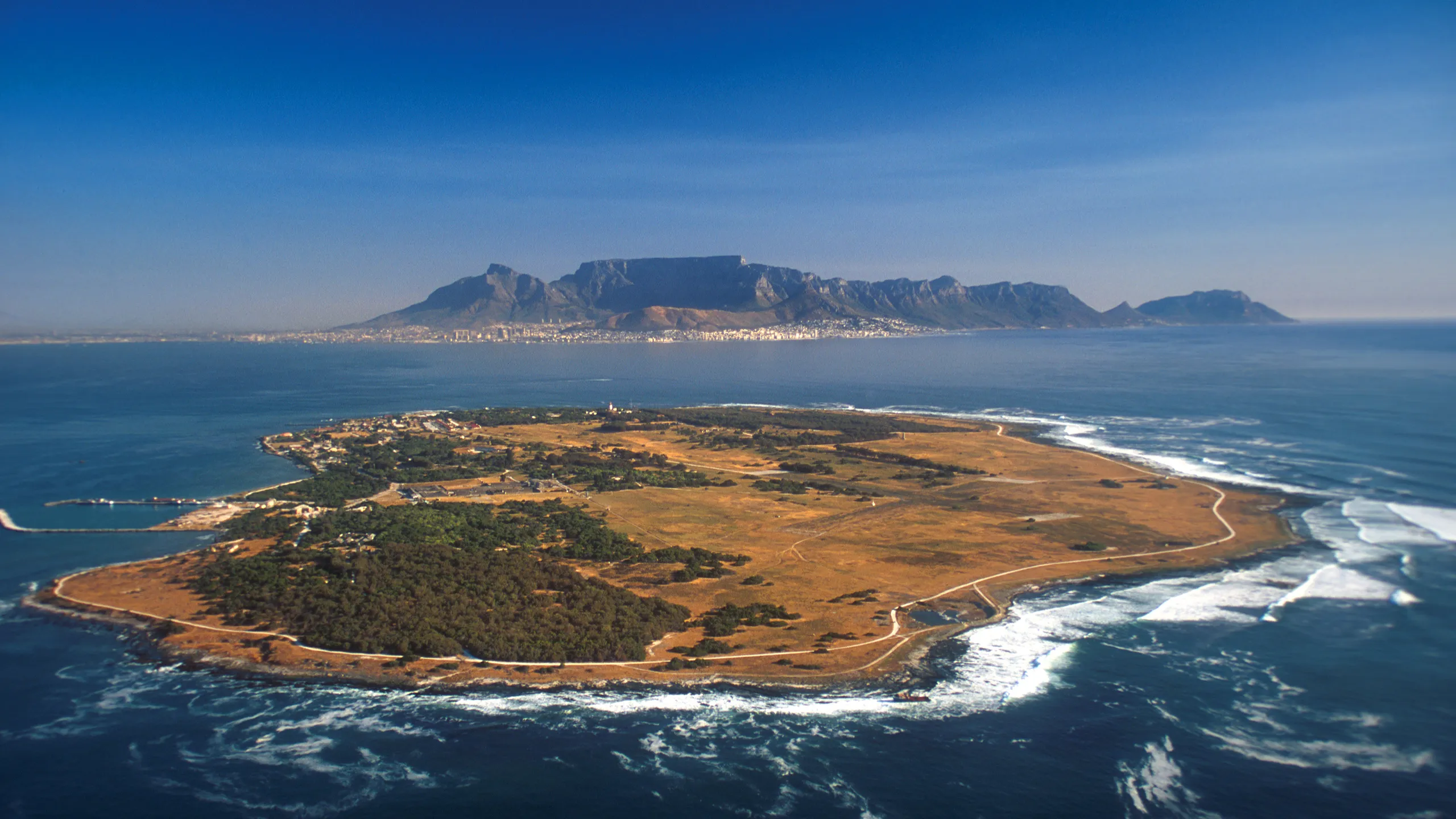
Historical significance of Robben Island
Robben Island holds incredible historical significance in South Africa. It is a UNESCO World Heritage Site and is known as the place where Nelson Mandela, the iconic anti-apartheid leader, was imprisoned for 18 years. The island served as a political prison for over 400 years and was used to isolate important political prisoners. It was here that Mandela and many other activists endured harsh conditions and fought for freedom and equality.
During the apartheid era, Robben Island was notorious for its harsh treatment of prisoners, but today it stands as a symbol of South Africa’s journey towards reconciliation and democracy. It serves as a powerful reminder of the country’s past and the resilience and determination of its people in the face of oppression.
Visiting Nelson Mandela’s prison cell
Visiting Nelson Mandela’s prison cell on Robben Island is a deeply moving experience. It offers visitors a chance to step into history and gain insight into Mandela’s life and the struggles faced by him and other prisoners during their time on the island. Former political prisoners lead the tour, offering a distinctive viewpoint and personal tales that bring the history to life.
While on the island, visitors can explore the prison complex, including the cells, the limestone quarry where Mandela and other prisoners tirelessly toiled, and the various buildings that make up the island’s history. The tour also includes a visit to the Robben Island Museum, which houses exhibits detailing the island’s history and the fight against apartheid.
It’s important to keep in mind that ferries are the only way to reach Robben Island, and weather can affect tours. It is recommended to book tickets in advance to secure a spot on the tour. Your other options is to book a Cape Town city full day tour, so that your transport is taken care of and you get a private drive to each attraction including your Robben Island boat trip.
Visiting Robben Island is not just a visit to a tourist attraction; it is an opportunity to learn about South Africa’s history, honor the sacrifices made by those who fought for freedom, and reflect on the importance of reconciliation.
Table Mountain
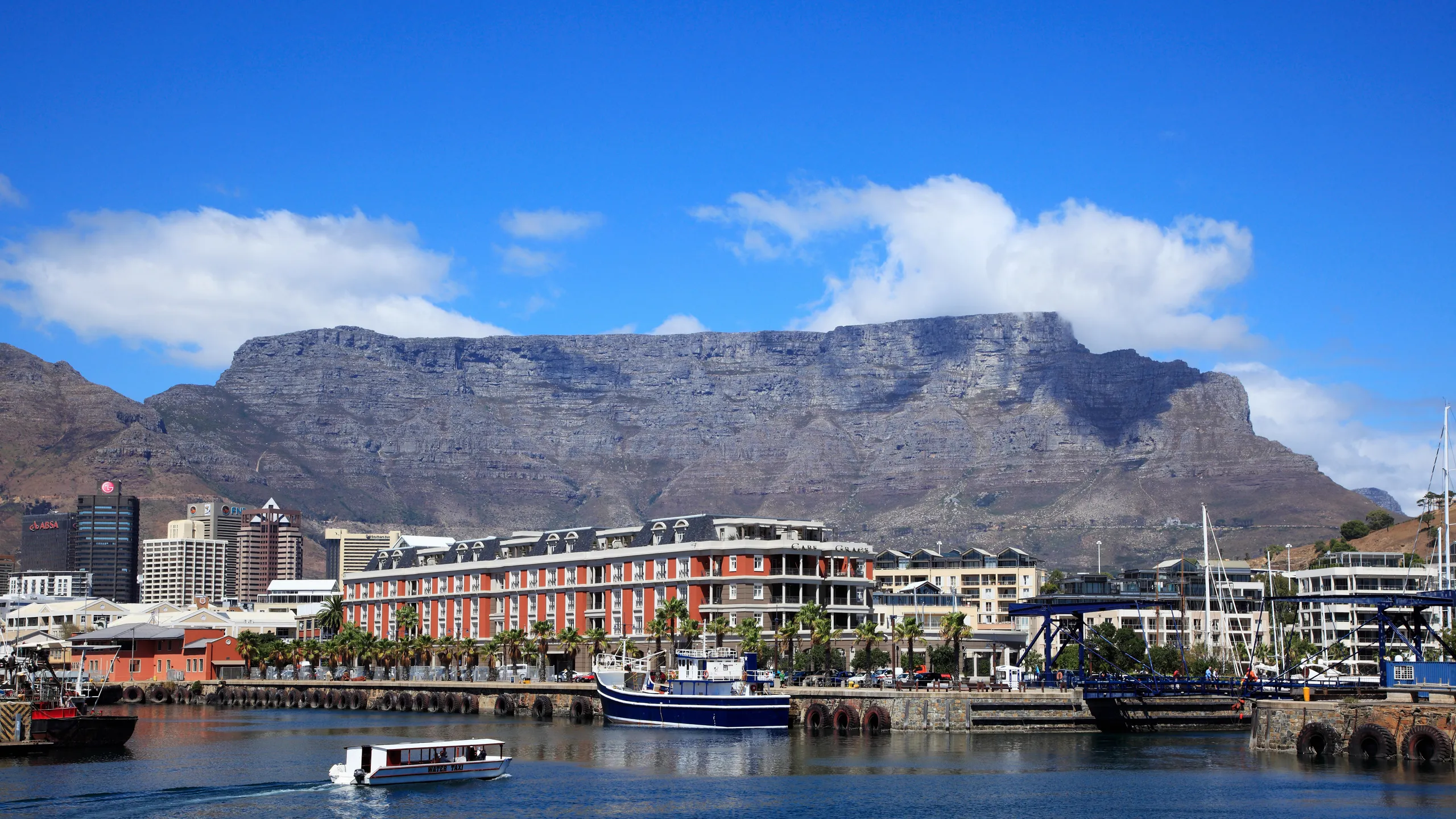
Hiking and cable car experience on Table Mountain
Table Mountain is one of the most iconic landmarks in South Africa and a must-visit destination for tourists. This flat-topped mountain not only offers breathtaking views but also provides incredible hiking and cable car experiences.
Hiking on Table Mountain allows visitors to immerse themselves in the natural beauty of the surrounding landscape. There are various hiking trails to choose from, ranging from easy walks to more challenging routes. The trails cater to different fitness levels and offer stunning views of the city, coastline, and surrounding mountains. It is important to note that proper hiking gear and precautions should be taken while hiking on Table Mountain.
For those who prefer a more relaxed experience, the Table Mountain Cableway provides a convenient way to reach the summit. The cable car offers panoramic views as it ascends to the top of the mountain, allowing visitors to take in the spectacular scenery without the physical exertion. The cable car rotates 360 degrees, ensuring that everyone has an opportunity to enjoy the views.
Once at the summit, visitors can explore the plateau, take in the awe-inspiring views, and even enjoy a meal at one of the restaurants. The summit also offers various walking paths and viewpoints, allowing visitors to admire the surrounding landscape from different angles.
Table Mountain is a unique destination that offers both adventurous hiking experiences and a convenient cable car option for those who prefer a more leisurely approach. Whichever option you choose, a visit to Table Mountain is bound to be a memorable part of your Cape Town itinerary. There’s so much you can do in Cape Town, it’s currently voted the second best city in the world, so be sure to do a few group private tours Cape Town when visiting to make the most of your trip.
Remember that you’ll need to find your way to Table Mountain from your hotel, so you need to either use public transport, or the better and more private option is to use an affordable transportation Cape Town option in Cape Town, like shuttle or chauffeur services.
For more information about Table Mountain, you can visit here.
Safari Experiences
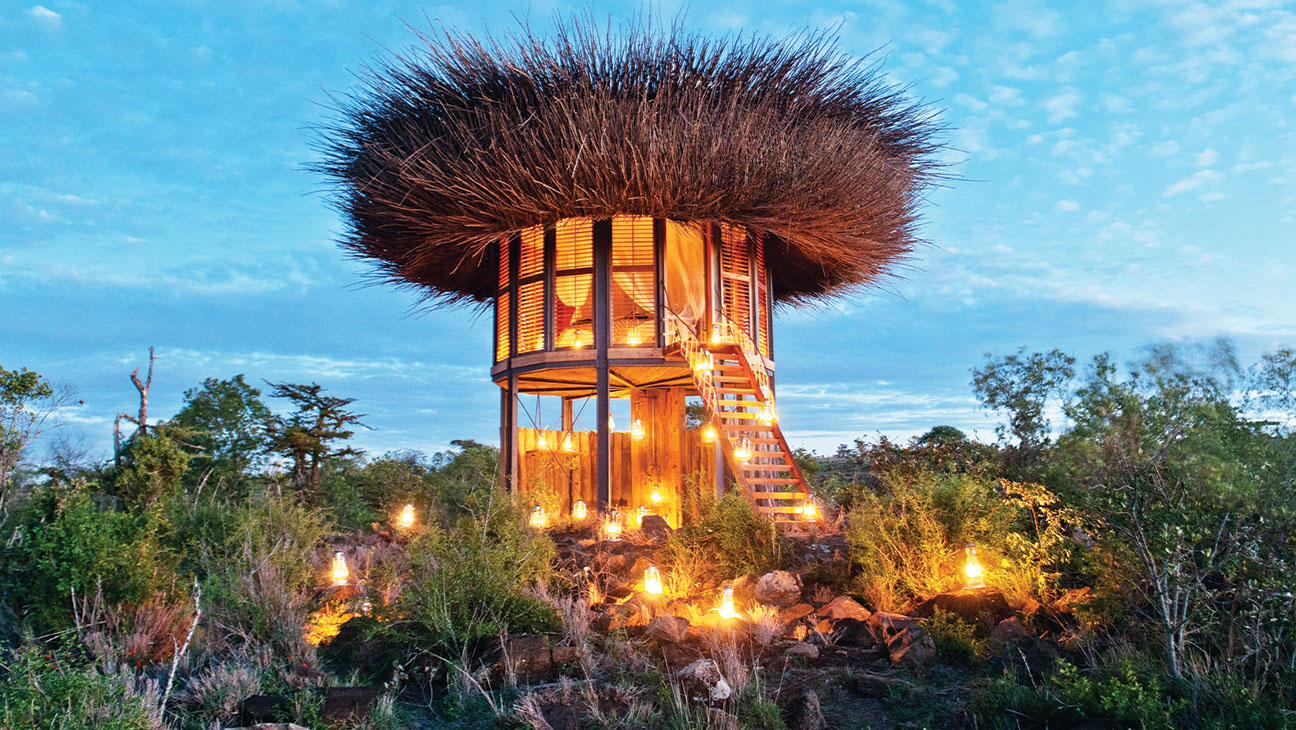
Different types of safaris in South Africa
South Africa is famous for its incredible wildlife and diverse landscapes, making it an ideal destination for safari enthusiasts.
Here are a few different types of safaris you can experience in South Africa:
1. Game Drives: Game drives are the most common and popular type of safari experience. You’ll explore national parks and private reserves in open 4×4 vehicles accompanied by experienced guides. This allows you to get up close and personal with the Big Five (lion, leopard, elephant, rhinoceros, and Cape buffalo), as well as other fascinating wildlife.
2. Walking Safaris: For a more intimate and adventurous experience, consider a walking safari. You will explore the African bush on foot with knowledgeable guides, tracking animals, and learning about the flora and fauna. Walking safaris provide a unique opportunity to observe wildlife behavior up close and learn more about their natural habitats.
3. Bird Watching Safaris: South Africa is a bird-lover’s paradise, home to a wide variety of bird species. Bird-watching safaris are perfect for avid birders who want to spot unique and beautiful species in their natural habitats. Whether you’re a beginner or an expert, South Africa offers excellent bird-watching opportunities throughout the country.
Best wildlife viewing opportunities
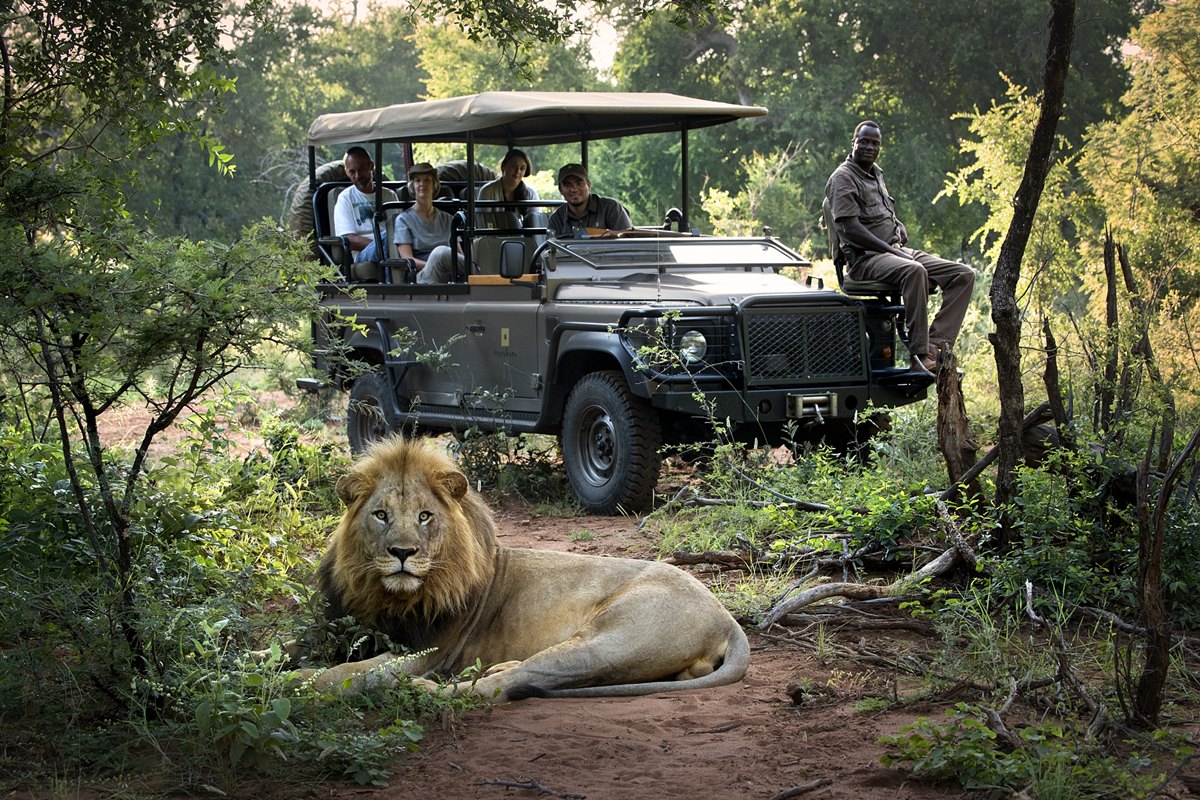
South Africa is renowned for its exceptional wildlife viewing opportunities. Here are some of the best places to spot wildlife during your safari:
1. Kruger National Park: One of the largest and most famous game reserves in Africa, Kruger National Park is home to an incredible diversity of wildlife. From lions and leopards to elephants and giraffes, you’ll have the chance to see the Big Five and more. The park offers a range of accommodation options, from luxury lodges to self-catering cottages.
2. Sabi Sands Game Reserve: Located adjacent to Kruger National Park, Sabi Sands is a private game reserve known for its exceptional leopard sightings. With exclusive lodges and knowledgeable guides, Sabi Sands offers an intimate and luxurious safari experience.
3. Addo Elephant National Park: Located in the Eastern Cape, Addo Elephant National Park is home to over 600 elephants. It’s the perfect place to observe these majestic creatures up close. The park also offers guided game drives and walking safaris.
4. Madikwe Game Reserve: Situated in the North West Province, Madikwe Game Reserve is known for its excellent wildlife sightings, including the Big Five. The reserve offers a range of accommodation options and is malaria-free, making it suitable for families.
South Africa’s national parks and private reserves offer unparalleled opportunities to witness the beauty of African wildlife in their natural habitats. Whether you choose a game drive, walking safari, or bird-watching safari, you’re guaranteed an unforgettable experience.
Cruising Cape Town: Your Transportation Palette for Every Adventure
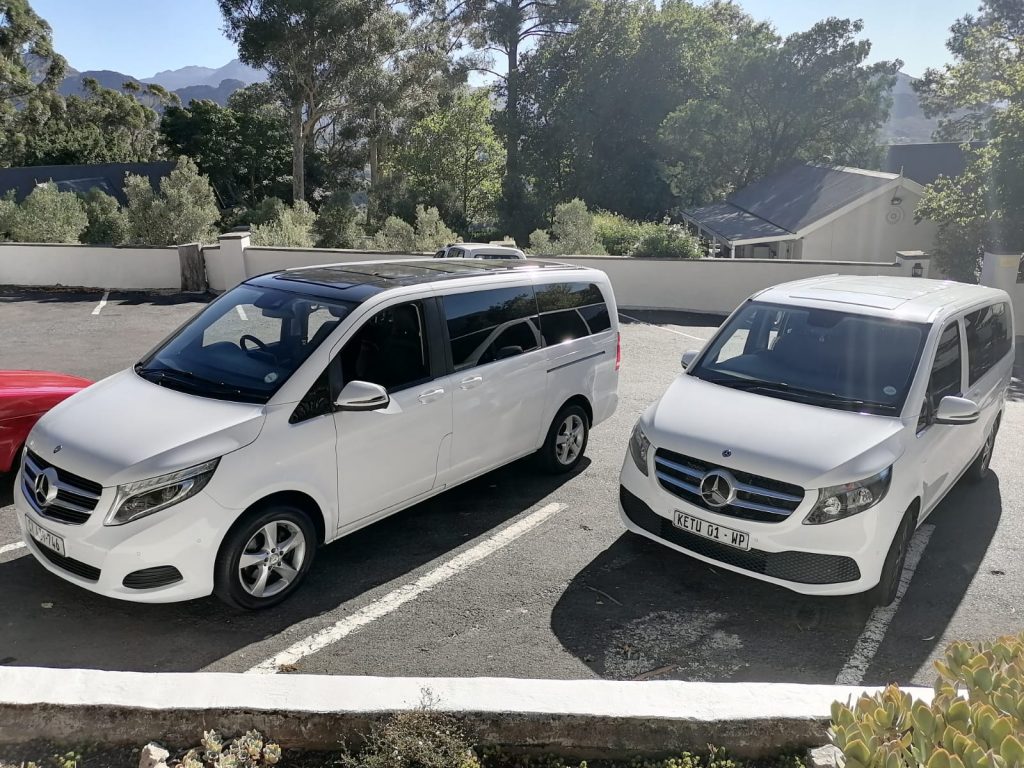
In the vibrant tapestry of Cape Town, getting around is an adventure in itself. Whether you’re a solo traveler or rolling with a crew, the transportation options here are as diverse as the landscapes that unfold around you.
For those who enjoy a collective vibe, group shuttle services in Cape Town offer not just rides but an opportunity to share tales and tips with fellow explorers. Picture this – winding through the coastal roads, the ocean breeze beckoning you to your next destination.
Now, if exclusivity is your travel mantra, Private Driver services step onto the stage. Imagine having a knowledgeable local guide at the wheel, curating your journey based on your whims and wishes. It’s like having your own personal GPS through the city’s nooks and crannies and knowing you have your own private driver Cape Town full day service.
Touching down at Cape Town International Airport marks the beginning of your adventure. Forget the hassle; dedicated airport shuttle services Cape Town are at your service, ensuring a seamless transition from flight mode to exploration mode.
So, whether you’re weaving through the bustling streets of the city bowl or winding your way through the iconic Winelands, let your transportation be an integral part of your Cape Town narrative. After all, the journey is just as important as the destination.
Conclusion
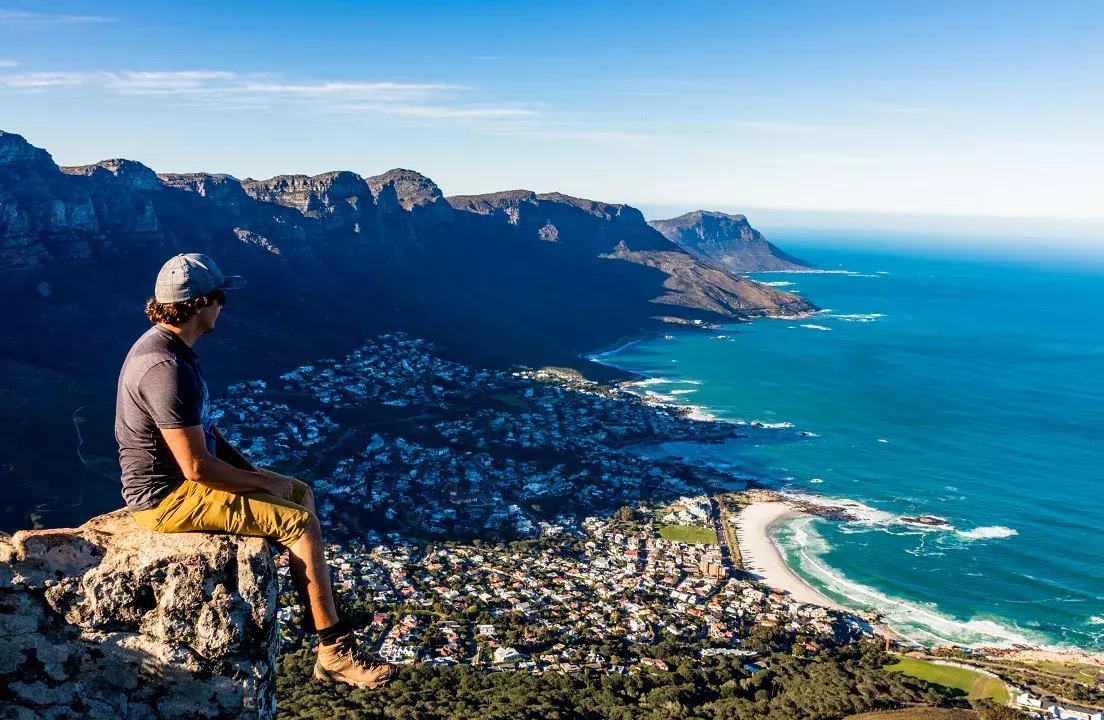
Summary of South Africa as a tourist destination
South Africa is a diverse and captivating country that offers a wide range of experiences for tourists. From its stunning landscapes and wildlife to its rich cultural heritage and vibrant cities, South Africa has something for everyone. Whether you’re an adventure seeker, a nature lover, or a history buff, this country has countless attractions and activities to explore. From iconic landmarks such as Table Mountain and Kruger National Park to vibrant cities like Cape Town and Johannesburg, South Africa leaves a lasting impression on visitors.
Tips for planning a trip to South Africa
- Research and plan your itinerary: South Africa have so much to offer, and it’s important to plan your trip well in advance to make the most of your time. Research the destinations and attractions you want to visit and create an itinerary that suits your interests and preferences.
- Consider the seasons: South Africa experiences different seasons, and each season offers unique experiences. Consider the weather and wildlife migration patterns when planning your trip to ensure you have the best possible experience.
- Safety precautions: While South Africa is a beautiful country, it’s important to take safety precautions and be aware of your surroundings. Research the safety situation in the areas you plan to visit and take necessary precautions such as avoiding walking alone at night and keeping your valuables secure.
- Get travel insurance: It’s always a good idea to have travel insurance when visiting any country, and South Africa is no exception. Make sure your insurance covers medical emergencies, trip cancellations, and any other unforeseen incidents.
- Embrace the local culture: South Africa is a culturally diverse country with various ethnic groups. Take the time to learn about the local culture, traditions, and customs, and respect them during your visit.
- Try the local cuisine: South Africa is known for its delicious food and vibrant culinary scene. Don’t miss the opportunity to try traditional dishes such as boerewors, bobotie, and bunny chow.
- Stay hydrated and protect yourself from the sun: South Africa can have hot and dry weather, especially in summer months. Make sure to drink plenty of water, wear sunscreen, and protect yourself from the sun’s rays.
South Africa is a destination that offers a unique blend of natural beauty, cultural heritage, and adventure. Whether you’re exploring the wildlife reserves, hiking in the mountains, or immersing yourself in the vibrant city life, South Africa has something for everyone. With proper planning and an open mind, your trip to South Africa is bound to be an unforgettable experience.
FAQs about South Africa Tourism
Q: Is South Africa a safe destination for tourists?
A: South Africa is generally safe for tourists, but like any destination, it is important to take precautions and be aware of your surroundings. Exercise common sense, avoid isolated areas at night, and follow local advice regarding safety. It’s also recommended to secure your belongings and be cautious of petty theft in crowded areas.
Q: What are the popular tourist attractions in South Africa?
A: South Africa offers a wide range of popular tourist attractions, including:
- Kruger National Park and other game reserves for wildlife safaris.
- Table Mountain in Cape Town, known for its stunning views and hiking opportunities.
- The Winelands region, particularly Stellenbosch and Franschhoek, famous for wine tasting and picturesque landscapes.
- The scenic Garden Route along the southern coastline, offering beautiful beaches, forests, and charming towns.
- Robben Island, where Nelson Mandela was imprisoned, located off the coast of Cape Town.
- The vibrant city of Johannesburg, with attractions like the Apartheid Museum, Soweto, and the Cradle of Humankind.
Q: When is the best time to visit South Africa?
A: The best time to visit South Africa depends on your preferences and the specific regions you plan to explore. Generally, the summer months (December to February) offer warm weather, but it can be crowded. Autumn (March to May) and spring (September to November) are pleasant with fewer crowds. Winter (June to August) is a good time for wildlife viewing but can be chilly, especially in the evenings.
Q: Do I need a visa to visit South Africa?
A: Whether you need a visa to visit South Africa depends on your nationality. Many countries have visa exemption agreements with South Africa, allowing for visa-free travel for a limited period. It’s advisable to check the visa requirements based on your citizenship and the purpose and duration of your visit well in advance of your travel dates.
Q: What is the currency in South Africa?
A: The currency in South Africa is the South African Rand (ZAR). It’s recommended to have some local currency for smaller establishments and markets. Credit cards are widely accepted in most tourist areas, but it’s a good idea to carry some cash for emergencies or when visiting more remote areas.
Q: What languages are spoken in South Africa?
A: South Africa has 11 official languages, including English, Afrikaans, Zulu, Xhosa, and others. English is widely spoken and understood, particularly in tourist areas, major cities, and the hospitality industry.
Q: Is it safe to drink tap water in South Africa?
A: In most urban areas, tap water in South Africa is safe to drink. However, it’s advisable to drink bottled water or use water purification methods when visiting rural or remote areas. If you are uncertain, consult with locals or opt for bottled water to ensure your safety.
Q: Are there any specific health concerns for travelers to South Africa?
A: Travelers to South Africa should be aware of certain health concerns. It’s recommended to consult with a healthcare professional or travel clinic to ensure you are up to date on routine vaccinations and receive advice regarding specific vaccinations, such as yellow fever, based on the areas you plan to visit. Malaria precautions may be necessary if visiting certain regions, particularly during the rainy season.
Q: What is the transportation system like in South Africa?
A: South Africa has a well-developed transportation system that includes domestic flights, buses, trains, and rental cars. Major cities have reliable public transportation options like buses, taxis, and ride-hailing services. It’s advisable to research and plan your transportation options in advance based on your itinerary and preferences.
Q: What should I pack for a trip to South Africa?
A: When packing for South Africa, consider the following essentials:
- Comfortable and breathable clothing suitable for the weather and activities.
- Good walking shoes for exploring cities, parks, and reserves.
- Sunscreen, a hat, and sunglasses for sun protection.
- Insect repellent, particularly if visiting malaria-prone areas.
- Travel adapters for South Africa’s plug type (Type D or M).
- A valid passport, necessary travel documents, and copies of important documents.
These FAQs provide general information about South Africa tourism, but it’s important to conduct further research, check the latest travel advisories, and consult with relevant authorities or travel experts before planning your trip.
